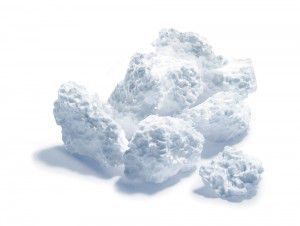
- Secondary care
- Orthopedic surgery
- Synthetic bone substitute
- Biovision Biomaterial
Synthetic bone substitute BioBASE for orthopedic surgerygranules
Add to favorites
Compare this product
Characteristics
- Type of graft
- synthetic
- Use
- for orthopedic surgery
- Shape
- granules
Description
BioBASE is a bioresorbable bone replacement from microporous and macroporous α-tricalcium phosphate. Biobase is an inorganic, bioresorbable bone replacement from pure-phase α-tricalcium phosphate.
BioBASE is a bone replacement for temporarily filling pathological, traumatic and postoperative bone defects. Biobase has a system of micropores (< 5 μm) and macropores (max. 1 mm) with a porosity of approx. 65%. This creates a far larger material surface, which enhances the reaction kinetics in the resorption processes. Biobase has a special surface structure which increases the level of calcium elution, and promotes ossification. BioBASE is broken down to the same extent as it forms new bones. Duration of resorption: 6 to 14 months.
Blood vessels and osteoblasts grow in the macropores and guarantee rapid proliferation of the new bone substance.
Tissue fluid penetrates the pore system, thereby enabling a complete hydrolitic breakdown of the material.
BioBASE acts as a conductor for the proliferating bones by producing an osteoconductive effect.
The constant and precise composition with a calcium-phosphorus atomic ratio of 1.5 is very similar to the calcium-phosphorus atomic ratio of the mineral phase of the human bone of 1.6 and guarantees the high degree of biocompatibility of BioBASE.
Indications
Addition of the material to autogenic or allogenic spongiosa to reconstruct bone defects e.g. in cases of spondylodesis, vertebral body replacement and in joint replacement surgery.
Filling defects in correction osteotomies
Filling the sites from which autogenic bones have been removed
Filling bone cysts
Use in cases of arthrodesis
Catalogs
*Prices are pre-tax. They exclude delivery charges and customs duties and do not include additional charges for installation or activation options. Prices are indicative only and may vary by country, with changes to the cost of raw materials and exchange rates.






